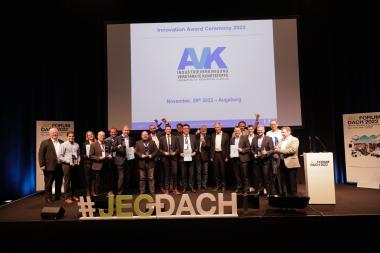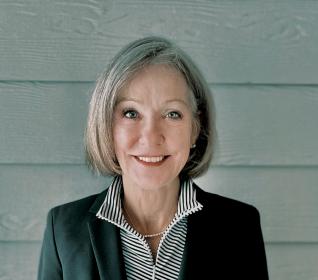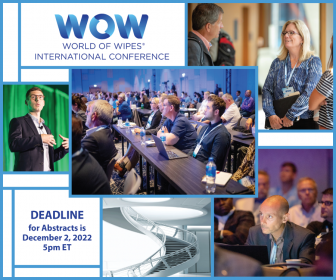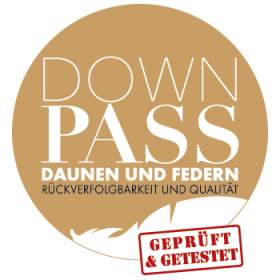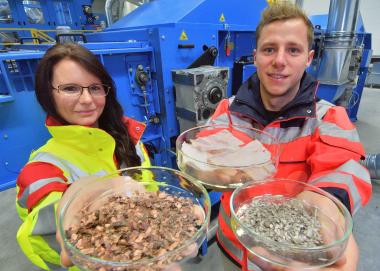AVK awards Innovation Prices
AVK, the Federation of Reinforced Plastics, has once again awarded its Innovation Awards to a range of companies, institutes and their partners in 2022. Three innovative composites from each of the three categories Products & Applications, Processes & Methods and Research & Science were honoured during the JEC Forum for Germany, Austria and Switzerland in Augsburg at an award ceremony on 29 November 2022. A professional jury, composed of engineers, scientists and trade journalists, presented the awards for 2022 in three categories.
List of award winners in the three categories:
Products & Applications category
First place: LAMILUX Composites GmbH, Rehau, Germany: Lamilux Sunsation® – the new standard under the sun
Second place: Carbo-Link AG, Fehraltorf, Switzerland: CL RESTRAP – Reinforcement of concrete girders using flexible, prestressed CRP tapes
Third place: Borgers SE & Co. KGaA, Bocholt, Germany: blue label by Borgers ®
Innovative Processes & Methods category
First place: BaltiCo GmbH, Hohen Luckow, Germany: Rod laying technology as an additive manufacturing process
Second place: Schmidt & Heinzmann GmbH & Co. KG, Bruchsal, Germany: Pole Position, a positioning system for polarisation imaging
Third place: NETZSCH Process Intelligence GmbH, Selb, Germany: SensXPERT, process optimisation driven by material data to increase the efficiency of thermosets and fibre composites
Research & Science category
First place: Institute for Textile Machinery and High Performance Textiles at the Technical University of Dresden: Spherically curved fibre-reinforced plastic composite components made from near-net-shape fabrics
Second place: Leibniz-Institut für Verbundwerkstoffe GmbH, Kaiserslautern, Germany: HyKoPerm – a measurement system for an industry-specific characterisation of textile impregnation behaviour
Third place: Technical University of Munich, Chair of Carbon Composites: Manufacturing processes for a tension-strut-supported pressure vessel that can be adapted to suit a given space
AVK AVK - Industrievereinigung Verstärkte Kunststoffe e. V. Composites Innovation award
AVK – Industrievereinigung Verstärkte Kunststoffe e.V.


